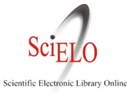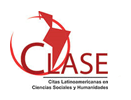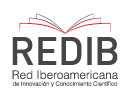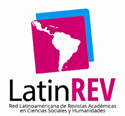Editorial policies
Focus and scope
Desde el Sur, a University of the South journal, publishes original articles, essays, and reviews by researchers worldwide in communication, education and cultural studies (social sciences and humanities), with a particular focus on Latin America.
Rejection rate
53% per year
Specific policies
|
Table 1. Specific policies |
||||
|
|
Open submissions |
Indexing |
Peer review |
|
|
Editorial |
No |
No |
No |
|
|
Article |
Yes |
Yes |
Yes |
|
|
Essay |
Yes |
Yes |
Yes |
|
|
Book review |
Yes |
Yes |
No |
|
|
Letter to the editor |
Yes |
Yes |
No |
|
|
|
|
|
|
|
Editorial process
The editor reviews the articles sent to Desde el Sur to determine if they are acceptable for publishing, require modification or must be rejected. The decision is objective and respects a plurality of opinions.
Should a contribution that the editor deems publishable require peer review (Table 2), its manuscript will be sent for evaluation to a peer whose expertise in the subject is proven, either because of their publishing record or academic qualifications. The peer reviewer will remain anonymous, and the remuneration will be ad-honorem. Additional peer reviewers may participate depending on the type of article (Table 2).
The reviewer(s) may recommend that the article be published (i) without modification, (ii) once minor changes (generally recommendations to improve the manuscript) are incorporated, or (iii) only if changes are made to address major problems that pertain to the methodology used or that require the author to provide a well-founded response. The recommendation may also include not publishing the article due to it containing irreparable errors. Taking the recommendation(s) into account, the editor will make the final decision.
An author requested to address peer review comments must make the corrections and send the new version, attaching a letter that responds to each comment. The editor will decide whether the corrected article is satisfactory or needs reassessment by a reviewer. The editor will then decide whether to accept or reject it for publication.
An accepted article will be proofread, laid out, converted into a proof, and sent to the author(s), who can, before the deadline set by the editor, make changes and then give their approval. An author who fails to respond in time will be deemed to have accepted the version sent by the editor.
|
Table 2. Word count and other characteristics by article type |
|||||
|
|
Abstract |
Contents (words) |
Peer review (number) |
|
|
|
Article |
150 |
8000 |
Yes (2) |
|
|
|
Essay |
150 |
6000 |
Yes (2) |
|
|
|
Book review |
No |
3000 |
No |
|
|
|
Letter to the editor |
No |
3000 |
No |
|
|
Maximum processing time
|
|
Editorial Committee review |
Peer review (if applicable) |
Review by Editorial Committee/Peers |
Time between acceptance and publication |
|
Article |
Maximum of 60 days |
Maximum of 90 days |
Maximum of 60 days |
Maximum of 120 days |
|
Essay |
Maximum of 60 days |
Maximum of 90 days |
Maximum of 60 days |
Maximum of 120 days |
|
Book review |
Maximum of 30 days |
Maximum of 60 days |
Maximum of 30 days |
Maximum of 90 days |
|
Letter to the editor |
Maximum of 30 days |
Maximum of 60 days |
Maximum of 30 days |
Maximum of 90 days |
Evaluation process
Desde el Sur uses the double-blind peer review process: the journal reveals neither the identity of the authors nor reviewers to the other party. The journal ensures confidentiality and manages any potential reviewer conflicts of interest.
It only engages peer reviewers who are expert researchers in the article’s topic, are external to the publishing institution, and are not members of the editorial board.
The article remains confidential throughout the peer review process: reviewers do not disclose or comment on the material they scrutinize. They must validate the information contained in the text and attest to its authenticity and originality.
The peer review must report any error, suspicion of plagiarism or other problem. Failure by the reviewer to do so will constitute serious misconduct.
Any reviewer who discovers a potential conflict of interest—for example, they know the author—must withdraw from the review.
Article Processing Charge (APC)
Desde el Sur publishes all its articles free of charge and without APC.
Anti-plagiarism policy
The journal will run all articles through Turnitin® to protect against plagiarism. It sets no maximum similarity percentage cut-off point. The Editorial Committee is responsible for deciding whether plagiarism is present; if so, it may reject the publication request on this basis.
Any ethical misconduct detected during the review process or after publication will be dealt with pursuant to the Code of Conduct for Journal Editors, available at: https://publicationethics.org/files/Spanish%20%281%29.pdf).
The scope for action includes retracting the article and banning the author(s) from future publication. The journal may also contact the responsible authorities and notify other journals.



















